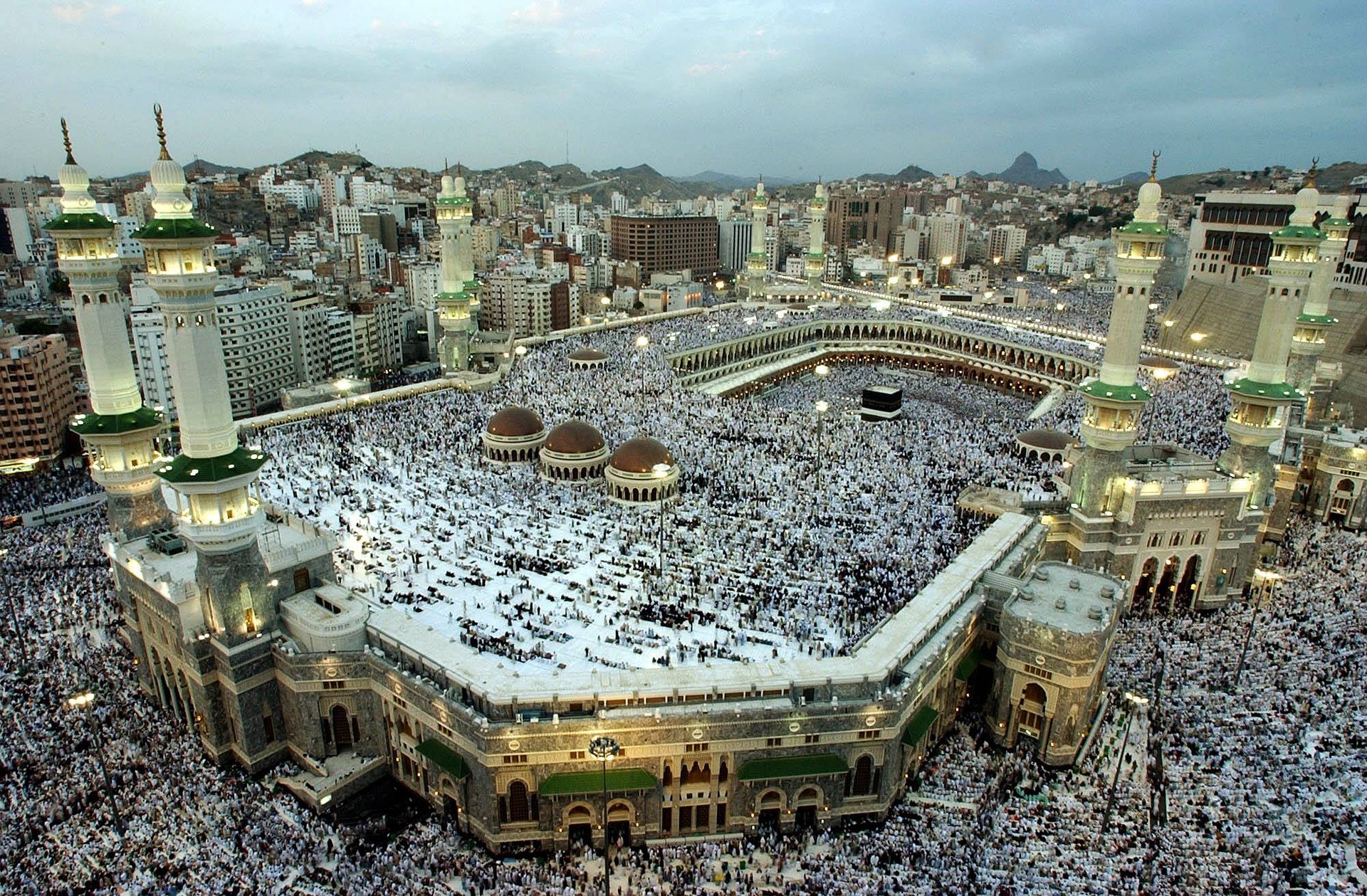These two Sūrahs were revealed one after the other, and share a common theme. In fact, their style, prose, and theme are so similar, that they flow together like one Sūrah. The theme of Sūrah ad-Ḍuḥā and Sūrah ash-Sharḥ is optimism during times of difficulty. Both Sūrahs inspire hope and optimism in the heart of the reader during difficult times. This is why it has become a common practice to recite these two Sūrahs in Salah during times of hardship.
Both of these Sūrahs are early Makkan Sūrahs. They are from the earliest revelation and were sent to comfort the Prophet (peace be upon him) as he began his difficult mission. The early days of Islam were a difficult time to preach the message. The number of believers were less than a hundred, and the idea that Muslims would one day be more than a billion people was unheard of.
It was during this difficult time that the Prophet (peace be upon him) faced harassment from his critics. The revelation had stopped for a short period of time and this made the Prophet (peace be upon him) anxious. His enemies began to ridicule him, claiming that his Lord had forsaken him. It was during this dark time of uncertainty, harassment and new beginnings, that these two wonderful messages of hope were revealed.
Sūrah ad-Ḍuḥā and the brighter future
Sūrah ad-Ḍuḥā is a message of hope and optimism about the future. Allah begins the Sūrah by taking an oath on the dawn and the night. Just like the dawn brings light after a dark night, likewise the revelation brings hope to mankind after the darkness of ignorance. This oath creates a powerful image of Islam lighting up the horizon as the age of ignorance draws to a close.
Allah informs the Prophet (peace be upon him) in this Sūrah that He has not forsaken him and is not displeased. This verse is a direct refutation to the critics and enemies who were harassing the Prophet (peace be upon him). Allah then informs the Prophet (peace be upon him) that the future will be better than what has passed.
This verse carries a double meaning. It can refer to both the future in this life and the next. For the majority of people, it refers to both. The majority of believers face difficult tests in this life followed by brighter futures. But some people face a lifetime of difficulty and the brighter future only comes in the Afterlife. The choice of words in this verse allow for both meanings to be derived and understood.
Allah then reminds the Prophet (peace be upon him) of several times in the past when difficulty was followed by ease. He was an orphan, but Allah blessed him with an amazing family. He was born into poverty but Allah provided for him and made him content. He was searching for a way to reform his society and Allah blessed him with prophethood.
In our own lives, we face many similar trials followed by periods of ease. When we reflect on our lives, we will realize that over and over again the dawn always came after a dark night. The future was always better than what came before. And our Lord has not forsaken us as long as we remained firm on the straight path.
Sūrah ad-Ḍuḥā ends with a call to action. The way to show gratitude to Allah for His Blessings is to share it with others. So Allah calls on us to give to the poor, assist the orphans and spread the message of Islam. These relate back to the three blessings mentioned earlier in the Sūrah. Allah has blessed us with wealth, so let us use it to uplift the poor. Allah has blessed us with family, so let us not forget to help the orphans. Allah has guided us to the straight path, so let’s share the message of Islam with the world.
Sūrah ash-Sharḥ and the promise of ease
Sūrah ash-Sharḥ continues the same style and theme, flowing from Sūrah ad-Ḍuḥā. Allah continues to comfort the Prophet (peace be upon him) by reminding him of His favors.
Allah reminds the Prophet (peace be upon him) that He gifted him with prophethood, forgiveness and praise. These three gifts are unique to the Prophet (peace be upon him). He was the final messenger, with that position came forgiveness for any human mistakes he made. With it also came more praise than any human before or after him would ever receive.
The name of the Prophet (peace be upon him) would become the most popular name of earth. People all over the world name their children after him. They send salutations upon him day and night, and even mention his blessings in the call to prayer and the Salah itself. No other human has been gifted with such praise by the Creator.
These unique gifts to the Prophet (peace be upon him) are gifts to us as well. Because these gifts led to Islam reaching us, and to our guidance. Therefore, it is a reminder to us too that Allah gifted us with being followers of the praiseworthy and final messenger, Muhammad (peace and blessings be upon him).
The flow of this Sūrah is the same as the one before it. Both Sūrahs remind us of Allah’s blessings on the Prophet (peace be upon him), promise us a brighter future and end with a call to action. The promise of a brighter future in this Sūrah is so profoundly worded that it has become a common proverb among Muslims all over the earth.
In this Sūrah, Allah promises that with difficulty comes ease. He makes this promise twice, and scholars have interpreted this in different ways. Some say that the repetition is for emphasis. Others state that it means an ease to accompany to test and an ease after the test. A third opinion is that after each test, the period of ease that follows it is twice as long. Allah knows best, but it seems that each interpretation is true and different people will experience ease in different ways.
The Sūrah again ends with a call to action. This time the call is to follow up our obligatory good deeds with optional good deeds, and to dedicate our lives to our Lord. Allah created us, guided us, and takes care of us. In return, He only asks that we worship Him and dedicate our lives to Him. It is in doing so that we will experience ease with every hardship, and a bright dawn after every dark night.






